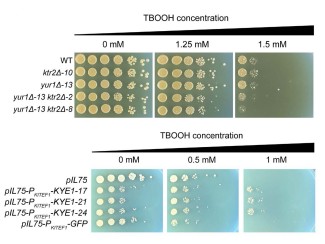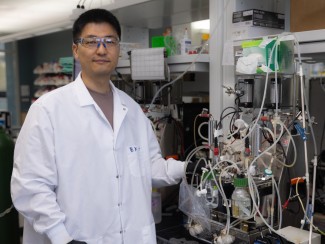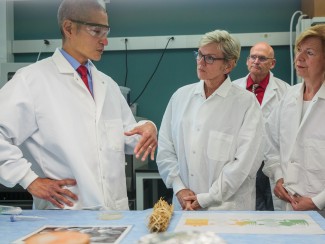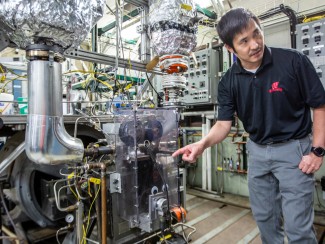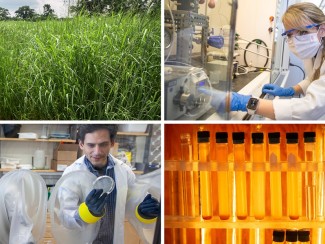
Media coverage this month focused on plastic pollution, green infrastructure and acetaminophen made from plants.
Recycling Plastic Has Been an Uphill Challenge. Could Chemical Recycling Change That?

PBS Wisconsin
Plastic pollution is a global threat on our lands and seas. Since World War II, we have created over 9 billion cubic tons of it, yet its recycling remains extremely limited. As part of our "Breakthroughs" series, Miles O'Brien looks at new ideas and innovations, such as chemical recycling and urban mining, that may enable better recycling in the future.
Featured Researchers
Researchers Patent a New Method to Synthesize Paracetamol From Poplar

Propopulus
Recently a team of researchers led by the biochemistry professor John Ralph PhD’82, based in the Great Lakes Bioenergy Research Center (GLBRC), in Wisconsin has been awarded a patent for a method to synthesize paracetamol— also known as acetaminophen — from a molecule found on the lignin from poplar trees. This new method offers a renewable alternative to the present manufacturing process that uses chemicals from coal tar.
Featured Researchers
How the U.S. Made Progress on Climate Change Without Ever Passing a Bill

The Atlantic
Over the past few years, a group of scholars, engineers, and economists have puzzled together a powerful thesis that explains why America and the world are decarbonizing—and how they can get better at it. UW–Madison's Greg Nemet adds his perspective to the topic.
Featured Researchers

